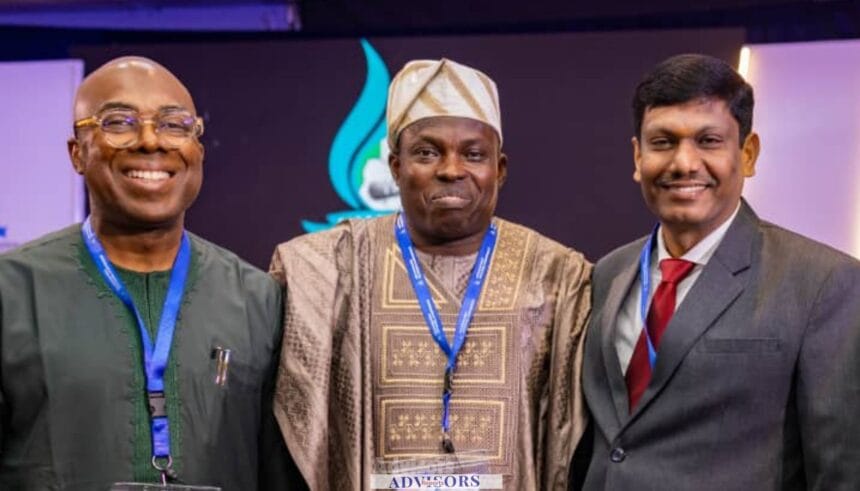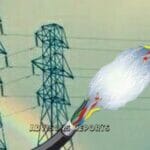… suggests measures to drive down price of cooking gas
… assures industry’s capacity to handle 5 million MT of LPG annually
Oredola Adeola
Mr. Suresh Kumar, Managing Director of NIPCO Plc, has called on the Nigerian Government to incentivize International Oil Companies (IOCs), including Chevron, to convert a larger portion of their propane output into butane.
This strategic shift, he said, would enhance domestic production of Liquefied Petroleum Gas (LPG) and help reduce the rising cost of cooking gas in the country.
Kumar made this known in his remark during the recently concluded 2024 National Conference of the Nigerian Association of Liquefied Petroleum Gas Marketers (NALPGAM) in Lagos.
He further emphasized the readiness of downstream operators to support increased production, noting that the existing infrastructure in the sector can handle up to 5 million metric tonnes of LPG annually.
The NIPCO MD assured that players in the industry are well-prepared to absorb supply from both associated and non-associated gas fields across Nigeria.
He revealed that local production of LPG remains inadequate, stating the less than 40 percent of the 1.5 million MT consumed domestically is produced locally.
Kumar said, “This is why the government must encourage companies like Chevron to convert more of their propane output into butane, which is more suitable for domestic use.
According to him, boosting local production would attract further investments in pipelines, storage, and bottling facilities, as well as expand retail outlets and LPG depots across Nigeria.
“Our latest assessments show that the existing downstream infrastructure is capable of handling up to 5 million MT annually. This means we are ready to accommodate increased production from both associated and non-associated gas fields within the country,” the MD said.
He urged the government to introduce more incentives and initiate strategic policies to encourage investments in gas processing.
“The key to unlocking the full potential of Nigeria’s gas resources lies in incentivizing investors to venture into gas processing,” Kumar said.
Responding to questions about the pricing of LPG amid a blend of local and imported supply, the Managing Director of NIPCO Plc expressed optimism that prices would decline as domestic production improves.
“With the Dangote Refinery and other refineries now sourcing crude oil in local currency, the volume of LPG produced locally is expected to increase, which will, in turn, drive down the price of the commodity,” he explained.
He added, “There is hope that the reliance on imported LPG will decrease, which will positively influence the prices at which the product is sold domestically. Greater local production will make LPG more affordable since it reduces exposure to foreign exchange fluctuations and international pricing dynamics.”
According to him, the demand for LPG in Nigeria has been relatively stagnant due to the high cost of the product.
“The current high prices have limited consumption growth, but this situation is only temporary. With more players entering the gas processing sector, we anticipate a market correction soon.
“We believe that with increased competition and expanded production, the market will find a balance in the medium and long terms,” he said.
The NIPCO’s MD further urged the federal government to support local refineries, including the Dangote Refinery, to boost domestic gas production.
“It is crucial for the government to back these refineries in their efforts to significantly increase LPG output. This will drive down retail prices and make the product more accessible to Nigerians,” the MD
Outlining NIPCO’s operations and future strategies in the downstream petroleum sector, Kumar, Managing reaffirmed the company’s commitment to driving sustainable energy growth through cooking gas and Compressed Natural Gas (CNG).
According to him, NIPCO Plc, which has been operational since 2004, initially entered the industry as a marketer of white products (petroleum fuels).
Kumar said, “Our strategy was driven by the fact that Nigeria has over 200 trillion cubic feet of gas reserves.
“We believe that the country’s gas consumption must be optimized through the promotion of both LPG for domestic use and CNG for industrial and transportation sectors,” the NIPCO MD said.
“In 2008, we invested in an LPG facility in Apapa with a capacity of 5,000 metric tons. Today, that same facility has grown to over 20,000 metric tons, thanks to strategic partnerships with our subsidiaries.
“We have also deployed LPG tankers and established multiple stations across Nigeria to ensure easy access to cooking gas for households nationwide.
“We are committed to aligning with Nigeria’s energy goals by promoting sustainable fuel options that leverage our vast natural gas resources,” Kumar revealed.
The Managing Director of NIPCO Plc said, “At the time NIPCO entered the market, Nigeria’s domestic LPG consumption was around 50,000 metric tonnes (MT) annually,” he stated.
“However, the past 16 to 17 years have been a remarkable journey. Today, the market has grown from 50,000 MT to approximately 1.5 million MT per year.”
Despite the growth, the MD pointed out that significant potential remains untapped, according to him, “We believe that less than 60 percent of Nigeria’s 200 million population has embraced the use of LPG.
“This highlights the immense opportunities within the market and underscores the need for more investments in gas processing, storage, and marketing to serve this large population.
“Our vision is to harness these opportunities and grow the country’s LPG consumption from 1.5 million MT to levels more appropriate for a population of over 200 million people,” NIPCO MD said.
Kumar further suggested collaboration between the Nigerian Midstream and Downstream Petroleum Regulatory Authority (NMDPRA) and other stakeholders to end gas flaring in the country.
He said, “Substantial investments are needed to capture and process flared gas to increase domestic supply beyond the current 1.5 million MT to at least 5 million MT annually.”
Mr. Ogbuo Ukoha, Executive Director of Distribution Systems, Storage, and Retailing Infrastructure at the Nigerian Midstream and Downstream Petroleum Regulatory Authority (NMDPRA) while responding to calls for government intervention to compel Chevron and other propane producers to increase butane production.
“If the government were to mandate Chevron and other propane producers to further blend their output into butane, these companies would need to make significant investments in blending facilities,” Ukoha explained.
He noted that Nigeria currently lacks adequate infrastructure to efficiently convert propane to butane at the required scale.
“We are working towards improving this, but only a few companies have started setting up blending facilities.
“Ardova, for example, has a facility operating in Apapa, and Stockgap is close to completing theirs, which will blend propane and butane to meet the specifications approved for domestic use,” he stated.
The NMDPRA Executive Director said, “We need more investment across the country in blending facilities to significantly increase the domestic supply of LPG,” he added.
Ukoha therefore urged stakeholders, including investors and members of NALPGAM, to capitalize on the opportunities provided by the Midstream and Downstream Gas Infrastructure Fund managed by the NMDPRA.
“There are substantial opportunities available through the fund, and investors must take advantage of them to unlock growth in the LPG sector,” he encouraged.




